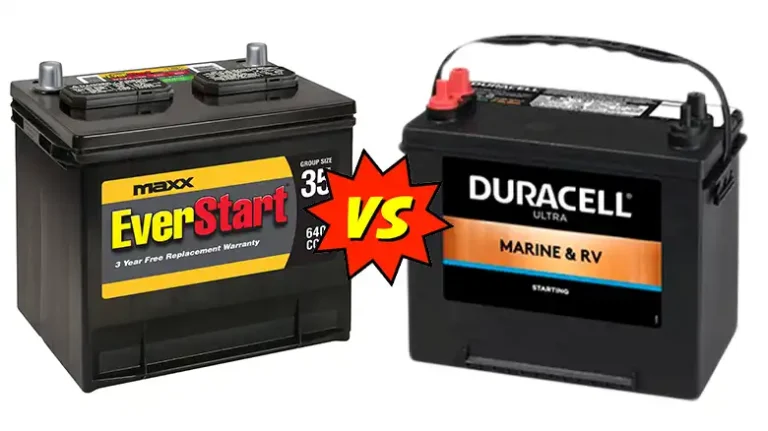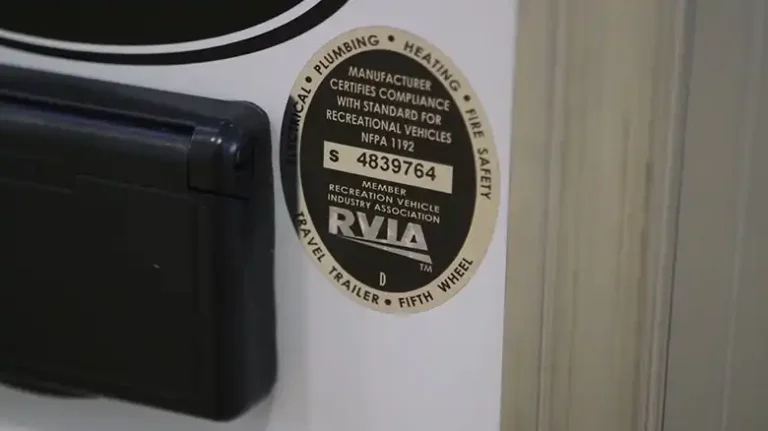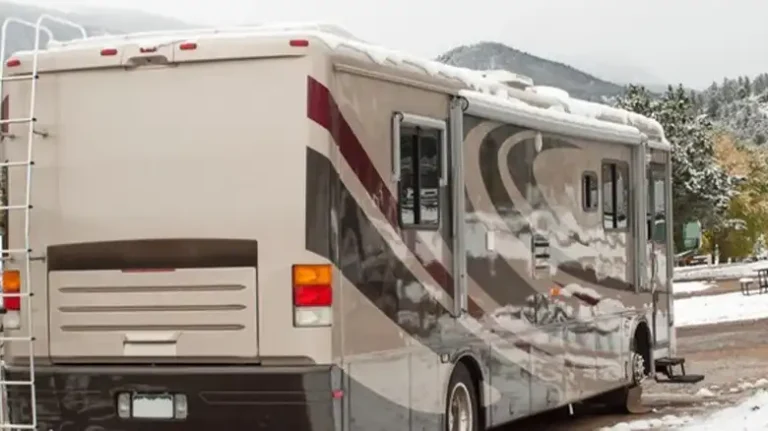Can a Class C Motorhome Tow a Boat? What to Consider
Many RVers love the ability to bring their boat with them on motorhome trips. But not all motorhomes are created equal when it comes to towing. So an important question for RVers is: can a Class C motorhome tow a boat?
The short answer is yes, many Class C motorhomes are fully capable of towing boats. Class C motorhomes are capable of towing anything between 5,000 to 15,000 lbs! And if you check out the weight of a boat such as a fishing boat, weighs around 1700, to 2500 lbs.
However there are important factors to consider regarding the motorhome’s tow rating, vehicle specs, hitch setup, braking system, and the size/weight of the boat itself.
Understanding these key factors will ensure safe, successful towing within your specific motorhome’s rated hauling capacity.

How Much Can Class C Motorhome Tow?
The maximum towing capacity for Class C motorhomes can range quite a bit depending on the exact make, model, engine, etc. Most of the Class C motorhome is capable of towing up to 5,000 lbs.
There you will find three types of class C motorhomes out there in the market, Gas, Diesel, and Super C. Among these three gas and Diesel Class C motorhome can tow up to 5,000 lbs whereas the Super C can tow about 15,000 to 20,000 lbs! The semi chassis is used for super C whereas class 3 or 4 chassis is used for diesel and gas class Cs. The semi-chassis made the Super C monstrous compared to the other two!
However, there you may see some exceptional cases as well. For example, if the class C chassis is stretched for a longer home, it won’t be allowed to tow anything along it. So, before hooking up anything with your C babe, it’s important to know about her capacity!
Towing capacity is always limited by the lowest-rated component in the equation. So checking your specific motorhome’s Gross Combined Weight Rating (GCWR) and tow rating specs is essential.
Exceeding either rating risks damage, increased wear, handling issues, and dangerous towing. RV and boating can be amazing hobbies, but safety comes first.
Factors to Consider for Towing Capability
Determining whether your specific Class C motorhome can successfully and safely tow your boat depends on several key factors:
Weight limits
There are a few key weight limits that come into play:
GCWR – Gross Combined Weight Rating
GCWR, or Gross Combined Weight Rating, is a crucial safety measure when towing a boat with your RV. It represents the absolute maximum weight that your RV and everything it’s carrying, including the boat, passengers, cargo, and fluids, can safely weigh. Here’s a breakdown with an example to make it crystal clear:
So for a motorhome with a GCWR (Gross Combined Weight Rating) of 18,000 pounds
This means:
Your RV itself, fully loaded with passengers, cargo, and fluids, cannot exceed 12,000 pounds.
When towing a boat, the combined weight of your RV, the boat, its trailer, passengers, cargo, and fluids in both vehicles cannot exceed 18,000 pounds.
Tow rating
This is the most important factor. Each motorhome has a specific tow rating, which is the maximum weight it can safely tow. Check your owner’s manual or the manufacturer’s website for your specific model’s rating. Remember, this includes not just the boat but also the trailer and any gear on it.
This rating can sometimes be higher than GCWR, but you always want to abide by the lower rating to stay within safe limits.
Hitch Class
Hitches are assigned standard weight class ratings from Class I (up to 2,000 pounds) to Class V (up to 17,000 pounds). Using a hitch above your motorhome/RV’s tow rating doesn’t increase capacity. Always match the hitch rating to your actual tow rating to stay within limits.
Tongue Weight
Tongue weight, in the context of towing, refers to the downward force exerted by the trailer tongue on the hitch ball of the towing vehicle.
Proper tongue weight is crucial for safe and stable towing. Too little weight can cause the trailer to sway, making it difficult to control and potentially leading to accidents. Conversely, too much weight can overload the rear tires of the tow vehicle and push the rear end around, affecting handling and braking.
Generally, the ideal tongue weight is 10-15% of the total loaded trailer weight. For example, if a trailer weighs 2,000 pounds when loaded, the tongue weight should be between 200 and 300 pounds.
Chassis and drivetrain
The chassis and drivetrain components of a motorhome play a crucial role in towing capability. These mechanical systems have to work together seamlessly to accelerate, brake, and handle the weight of a trailer safely. Key elements include:
Engine power
Having adequate engine power is vital when towing extra weight. Most Class C motorhomes have V6 or V8 gasoline engines in the 300-400 horsepower range, with some larger models featuring diesel engines up to 450HP. More horses and torque allow easier acceleration when pulling the combined weight of the RV plus the full trailer. Upgrades like turbocharging also help engine output.
You’ll want to choose the largest engine available for your particular motorhome model if planning to tow close to capacity frequently. Towing puts much higher loads on an engine for extended periods – so having some power reserves goes a long way towards confidence and ease of handling. Don’t be afraid to use lower gears down hills either to take some load off the engine and transmission when towing.
Transmission
Look for motorhomes equipped with an integrated tow/haul mode when transmission shopping. This alters the shift points to help optimize horsepower and torque delivery needed while towing.
Instead of aiming for maximum fuel economy, it holds lower gears longer when accelerating. And it downshifts more readily when going downhill to use engine braking assist. Tow/haul prevents unwanted gear hunting and keeps the engine RPM better matched to the increased loads seen when towing.
Transmission cooler upgrades are another spec to watch for if you’ll be frequently towing boats or heavy loads. The extra cooling capacity helps the transmission withstand high temperatures and heavy use this brings during launch trips or long mountain grades without overheating risk.
Braking system
Upgraded braking systems are essential to handle the increased weight of a fully loaded boat trailer. Look for motorhomes featuring 4-wheel anti-lock disc brakes to ensure maximum stopping force and control.
Integrated trailer brake controllers mean you can tap into the motorhome’s hydraulic system to actuate electric or surge brakes on the trailer as well. This syncs braking effort between both vehicles – spreading out heat load and greatly reducing stopping distance compared to just the motorhome brakes alone.
Engine and exhaust braking functionality can also assist in slowing the combined weight when heading downhill – taking some load off the primary friction brakes. Test braking requirements fully loaded before any long trips. And allow ample room to stop gradually with a boat in tow.
How to Safely Tow a Boat with Your Class C Motorhome
Follow this checklist before and during any motorhome towing to ensure a smooth, safe experience:
- Verify your motorhome tow rating, GCWR, hitch class, and all weight limits. Choose a boat that stays within these specs when fully loaded.
- Use a quality-weighted distribution hitch matched to your tow rating. Proper tongue weight is key.
- Check all trailer electrical connections and lighting functions before each trip.
- Allow extra distance for braking. Light braking over long intervals helps maintain control.
- Watch speed. Towing puts more strain on tires and suspension. Obey speed limits.
- Monitor rearview mirrors carefully to track trailer swing/sway. Make gentle steering inputs.
- Load gear and distribute weight appropriately in both vehicles. Mind the tongue weight.
- Confirm routes will accommodate trailer length/height. Watch for low clearances.
Taking things slow and steady while towing maximizes safety. But a properly equipped motorhome can confidently tow boats from small fishing skiffs or inflatables up to 18+ foot bowriders or smaller sailboats. With the right setup, you’ll be launching your boat and enjoying new waters accessible only by RV in no time!
After a full day on the water, pulling up to your motorhome for grilling, relaxing, and reminiscing about the day’s catch makes for unforgettable RV adventures. Understanding your particular Class C’s towing capability helps ensure many memorable boating trips to come.
Conclusion
The majority of Class C motorhome owners who enjoy boating can work a capable boat towing setup. As long as you carefully follow tow ratings, and GCWR limits, utilize a weight-distributing hitch, and choose a sensibly sized boat trailer – safe towing is certainly feasible.
Some smaller Class C RVs do lack the capacity to handle much for tongue weight or trailer load. But discussing options with your dealer, referencing specific towing guides for your make/model, and choosing the right hitch equipment ensures you can bring your boat along for awesome motorhome adventures.







